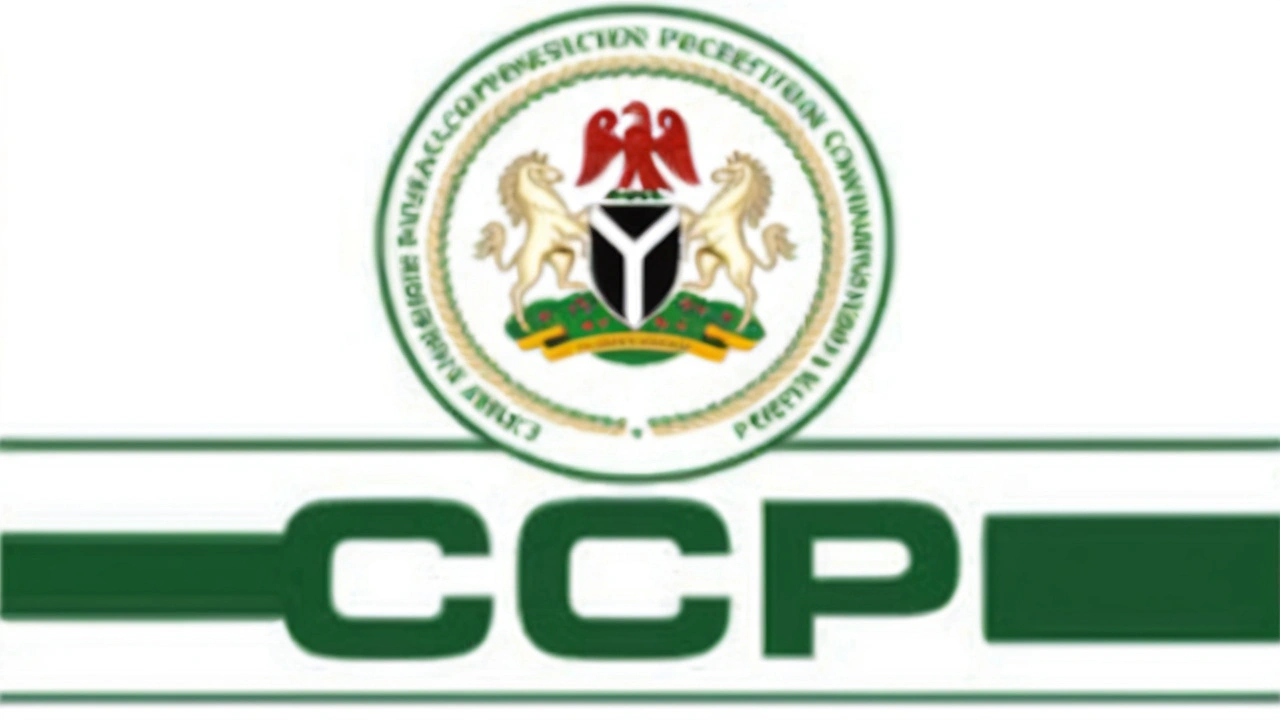WhatsApp's Potential Exit from Nigeria: A Nation in Communication Limbo
The relationship between WhatsApp and Nigeria has turned stormy as regulatory clouds gather on the horizon. Owned by Meta, WhatsApp has become a cornerstone of communication for millions of Nigerians, weaving a web of connectivity across personal and business arenas alike. However, recent regulatory moves by the Nigerian government have put this vital lifeline at risk. The government’s drive for more stringent controls on social media platforms has set off alarm bells among tech giants, who worry about the dual specters of censorship and compromised data privacy.
The Nigerian Communications Commission (NCC) is at the heart of this controversy. Recent regulations issued by the NCC mandate that social media platforms register with the government. More unnervingly, these platforms might be compelled to share user data with authorities upon request. For WhatsApp, which thrives on the promise of secure, end-to-end encrypted communication, this regulation is not just a bureaucratic hurdle but a potential dealbreaker. The platform is now seriously weighing the option to withdraw its services from Nigeria, a move that could disrupt millions of users who rely on it daily.
The Economics of Connectivity: WhatsApp's Role in Nigerian Society
With a population exceeding 200 million, Nigeria stands as Africa’s most populous country and boasts a rapidly growing digital ecosystem. WhatsApp is deeply embedded in the country's social fabric, serving as the preferred mode of communication for both informal chat and business dealings. From coordinating market trades to setting up professional meetings, and even facilitating emergency services, WhatsApp's influence in Nigeria is profound.
The regulatory change thus poses a question of more than just data policies – it threatens the very infrastructure of modern communication. For many, WhatsApp is not just a platform but a primary means of interaction, tipping the scale of the nation's social and economic dynamics. The potential withdrawal of WhatsApp would not only create voids in day-to-day interactions but could also jeopardize business operations, hampering the economic resilience of small and medium enterprises (SMEs) that form the backbone of Nigeria’s economy.
Behind the Regulations: The Nigerian Government’s Push for Control
Understanding the Nigerian government’s motivations helps illuminate why these regulatory measures are coming into play. Officials argue that enhanced oversight on social media platforms is essential for national security, combating misinformation, and curbing cyber crimes. Through the lens of government policymakers, the unchecked flow of information across social media platforms needs to be controlled to protect the public interest.
However, critics assert that these regulations veer dangerously close to violating the principles of free speech and personal privacy. They argue that demanding registration and potential data sharing could usher in an era of censorship, where government scrutiny over everyday communications becomes pervasive. The tug-of-war between regulatory ambitions and civil liberties is neither new nor unique to Nigeria, but it underscores the fine balance that must be maintained in digital governance.
Global Perspectives: WhatsApp and the Tech Industry’s Response
The predicament facing WhatsApp isn’t isolated to Nigeria. Across the globe, tech companies are navigating a minefield of regulatory landscapes that get increasingly complex and constrictive. From Europe's General Data Protection Regulation (GDPR) to India's Data Protection Bill, the industry is acclimating to a world where data sovereignty and privacy are at the forefront of governance. However, the Nigerian directive introduces another layer of rigidity that aims squarely at the central operations of social media companies, including data sharing and governmental oversight.
For WhatsApp, decisions made in response to Nigeria’s regulatory stance could set a precedent affecting its calculus in other markets. Tech pundits agree that a potential withdrawal from Nigeria would ripple through the industry, sending a strong message about the limits of regulatory compliance where data privacy and user security are concerned. The domino effect could spark a reevaluation of business strategies for other tech companies facing similar regulatory pressures.
Implications for Nigeria's Digital Future
For a country like Nigeria, teetering on the precipice of a digital revolution, WhatsApp's potential exit can have far-reaching ramifications. Imagine a landscape where millions suddenly find their primary mode of communication severed. The disruption is not just inconvenient; it can be socially and economically paralyzing. Students, professionals, traders, and families who rely on the app for daily exchange would be left scrambling for alternatives which may not offer the same security or convenience.
Moreover, businesses too could suffer severely. WhatsApp Business has become a tool for countless SMEs to engage with customers, process orders, and manage logistics. A forced migration to other platforms could incur operational costs, reduce customer engagement, and, in some cases, even lead to shutdowns. The economic ripple effect would be tangible, potentially stifling the growth Nigeria has attained through its burgeoning tech scene.

Conclusion: Navigating the Crossroads
As WhatsApp finds itself at a crossroads in Nigeria, the decisions made here will resonate beyond its own platform. In a digital era where information is power, the push and pull between regulation and freedom finds its latest battleground in Nigeria. The world watches as Meta and the Nigerian government grapple with an issue that is far from binary. Choices made in the coming months will not only chart the course for WhatsApp’s future in Nigeria but could rewrite the rulebook for digital governance globally.
Until then, millions of Nigerians continue to use WhatsApp daily, possibly unaware that their digital lifeline hangs in a precarious balance. The tightrope walked by legislators and tech giants alike will define the next chapter of digital communication, and for users in Nigeria, the stakes have never been higher.

christine mae cotejo
August 2, 2024 AT 19:16The looming departure of WhatsApp from Nigeria reads like a tragic act in a digital drama, where the protagonists are millions of users whose daily lives hinge on instant, encrypted chats.
Imagine market traders in Lagos whose negotiations suddenly lose the speed and security they've relied on for years.
Small business owners, who once closed deals through WhatsApp Business, now face a looming communication vacuum that could cripple cash flow.
The Nigerian Communications Commission’s recent edict, demanding registration and potential data sharing, strikes at the very heart of end‑to‑end encryption, the very promise that made WhatsApp a trusted lifeline.
Meta’s hesitation is understandable; surrendering user privacy on a legal altar is a precedent no tech giant wishes to set.
Yet the societal ripple effect cannot be overstated: families separated by geography rely on the platform for emotional support, students use it for collaborative study groups, and NGOs coordinate relief efforts through its channels.
If the platform withdraws, the scramble for alternatives could spur a chaotic migration to services lacking comparable security, exposing users to phishing and data harvesting.
Governments worldwide are tightening the regulatory noose, but the Nigerian case is unique in its blend of security rhetoric and potential overreach.
Economically, the loss could translate into measurable GDP dents as SMEs grapple with higher communication costs and reduced market reach.
Legally, the forced data sharing could contravene international privacy standards, inviting litigation that further destabilizes the tech ecosystem.
From a human rights perspective, severing this digital artery threatens freedom of expression, especially in a nation where traditional media is often under strain.
On the flip side, a robust regulatory framework could, if crafted with nuance, foster a more transparent digital environment without sacrificing privacy.
Stakeholders must therefore engage in a multi‑layered dialogue, balancing national security imperatives with the indispensable value of private, encrypted communication.
In the meantime, users can mitigate risk by diversifying their communication channels and advocating for clear, proportionate legislation.
Ultimately, the outcome will set a precedent not only for Nigeria but for any country daring to wrest control from encrypted platforms.
Douglas Gnesda
August 25, 2024 AT 23:06From a compliance architecture standpoint, the NCC’s mandates force Meta into a classic data‑sovereignty bind, where cross‑border data flow constraints clash with the platform’s encryption backbone.
When you parse the regulatory verbiage, you see a push for registration scaffolding that resembles EU‑style GDPR checkpoints, yet without the robust safeguards that make GDPR palatable.
In practice, this could mean that any data request from Nigerian authorities would bypass the usual lawful‑process checks, eroding the end‑to‑end encryption guarantees.
The tech industry, especially messaging services, typically navigate such frameworks by implementing tiered data‑access layers, but WhatsApp’s design philosophy intentionally omits server‑side message storage.
If Meta concedes to the data‑sharing clause, it fundamentally undermines the cryptographic protocols that differentiate WhatsApp from its competitors.
Strategically, the company faces a cost‑benefit calculus: retain a massive user base at the expense of core privacy tenets, or exit and preserve brand integrity while sacrificing market share.
Stakeholders-ranging from civil society groups to business coalitions-must therefore scrutinize the nuanced trade‑offs embedded in this policy shift.
Abhijit Pimpale
September 18, 2024 AT 02:56The NCC's registration demand directly contradicts WhatsApp's encryption promises.
Eric DE FONDAUMIERE
October 11, 2024 AT 06:46Yo, y'all gotta realize that the vibe is shifting fast, and we can't just sit around waiting for the platform to vanish!
Think about the hustle of daily chats, the deals in the market, the way families stay tight even when miles apart.
If WhatsApp pulls out, folks will scramble for other apps, but most of them ain’t got the same security vibes.
Meta should definitely push back hard – we need that end‑to‑end encryption, no compromises.
And the government? They better re‑think this overreacchion before they break the digital lifeline of millions.
Stay strong, stay informed, and keep those convos rolling on whatever platform works!
Pauline Herrin
November 3, 2024 AT 09:36It is evident that the Nigerian government's approach, while ostensibly rooted in national security, betrays a cavalier disregard for the foundational principles of open communication and personal privacy.
The imposition of mandatory registration coupled with potential data disclosure obligations represents a disproportionate encroachment upon the rights of citizens to secure and confidential discourse.
Such regulatory overreach not only jeopardizes the trust placed in platforms like WhatsApp but also sets a perilous precedent for future digital governance.
One must question whether the purported benefits of heightened oversight truly outweigh the profound erosion of civil liberties.
pradeep kumar
November 14, 2024 AT 23:40Heavy‑handed regulation will only stifle innovation and push entrepreneurs toward insecure alternatives.
love monster
November 26, 2024 AT 13:43Hey folks, let's keep the conversation constructive; there are practical steps we can all take while the policy debate unfolds.
First, diversify your communication toolkit-consider adding Signal or Telegram for critical chats to hedge against any potential disruption.
Second, stay informed about local regulatory updates through reliable tech news outlets so you can anticipate changes before they hit.
Christian Barthelt
December 8, 2024 AT 03:46While the sentiment is noble, it is erroneous to claim that any regulation is inherently detrimental; a measured framework could actually enhance user trust.
Moreover, the assertion that WhatsApp must abandon encryption overlooks the possibility of implementing a lawful‑access protocol that preserves core security while satisfying legitimate state interests.